Full Story Here. And Here’s Our Rhyming Round-up Of Other Ancient, Giant Versions Of Modern Mammals:



Full story here. And here’s our rhyming round-up of other ancient, giant versions of modern mammals:
Image credit: Mauricio Antón/Journla of Systematic Palaeontology
More Posts from Ritasakano and Others


Over geological timescales – on the order of millions of years – even hard substances like rock can flow like a fluid. Heat from the Earth’s core drives convection inside our mantle, and that fluid motion ultimately drives the plate tectonics we experience here at the surface. But most other planetary bodies, including those with mantle convection similar to ours, don’t have a surface that shifts like our tectonic plates. Mars and Venus, for example, have solid, unmoving surfaces. The images above provide a peek at what goes on beneath. The upper image shows a simulation of mantle convection inside Mars over millions of years. The lower image is a timelapse of dye convecting through a layer of glucose syrup being heated from below. Notice how both examples show evidence of convective cells and plumes that help circulate warm fluid up and colder fluid downward. (Image credit: Mars simulation - C. Hüttig et al, source; N. Tosi et al., source; submitted by Nicola T.)





The Japanese Mini Truck Garden Contest is a Whole New Genre in Landscaping

“The Stella Pinafore Toilette.”
Enquire Within, Ladies Home Journal
5th February 1916.

Doha uma jóia no deserto!!
Incrível a projeção da explosão e a Terra. Vivas a distância!!!
The Sun Just Released the Most Powerful Flare of this Solar Cycle
The Sun released two significant solar flares on Sept. 6, including one that clocked in as the most powerful flare of the current solar cycle.
The solar cycle is the approximately 11-year-cycle during which the Sun’s activity waxes and wanes. The current solar cycle began in December 2008 and is now decreasing in intensity and heading toward solar minimum, expected in 2019-2020. Solar minimum is a phase when solar eruptions are increasingly rare, but history has shown that they can nonetheless be intense.

Footage of the Sept. 6 X2.2 and X9.3 solar flares captured by the Solar Dynamics Observatory in extreme ultraviolet light (131 angstrom wavelength)
Our Solar Dynamics Observatory satellite, which watches the Sun constantly, captured images of both X-class flares on Sept. 6.
Solar flares are classified according to their strength. X-class denotes the most intense flares, followed by M-class, while the smallest flares are labeled as A-class (near background levels) with two more levels in between. Similar to the Richter scale for earthquakes, each of the five levels of letters represents a 10-fold increase in energy output.
The first flare peaked at 5:10 a.m. EDT, while the second, larger flare, peaked at 8:02 a.m. EDT.

Footage of the Sept. 6 X2.2 and X9.3 solar flares captured by the Solar Dynamics Observatory in extreme ultraviolet light (171 angstrom wavelength) with Earth for scale
Solar flares are powerful bursts of radiation. Harmful radiation from a flare cannot pass through Earth’s atmosphere to physically affect humans on the ground, however — when intense enough — they can disturb Earth’s atmosphere in the layer where GPS and communications signals travel.
Both Sept. 6 flares erupted from an active region labeled AR 2673. This area also produced a mid-level solar flare on Sept. 4, 2017. This flare peaked at 4:33 p.m. EDT, and was about a tenth the strength of X-class flares like those measured on Sept. 6.

Footage of the Sept. 4 M5.5 solar flare captured by the Solar Dynamics Observatory in extreme ultraviolet light (131 angstrom wavelength)
This active region continues to produce significant solar flares. There were two flares on the morning of Sept. 7 as well.
For the latest updates and to see how these events may affect Earth, please visit NOAA’s Space Weather Prediction Center at http://spaceweather.gov, the U.S. government’s official source for space weather forecasts, alerts, watches and warnings.
Follow @NASASun on Twitter and NASA Sun Science on Facebook to keep up with all the latest in space weather research.
Make sure to follow us on Tumblr for your regular dose of space: http://nasa.tumblr.com.
🍂 Outono 🍂
Folhas 🍁

via :))) by Inna Dubrovskaya / 500px Autumn Leaves
👏


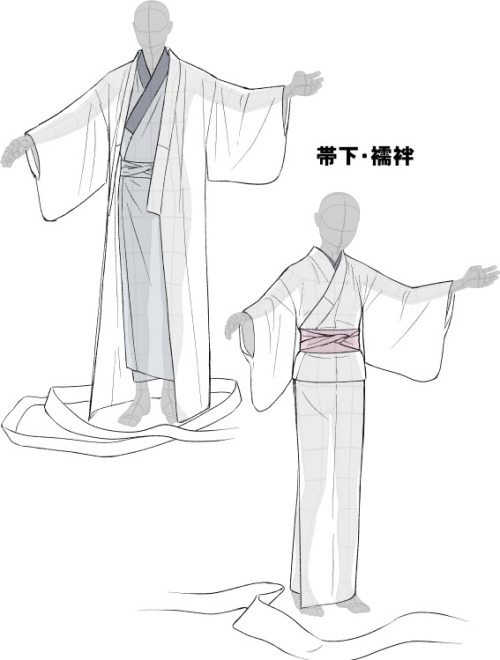
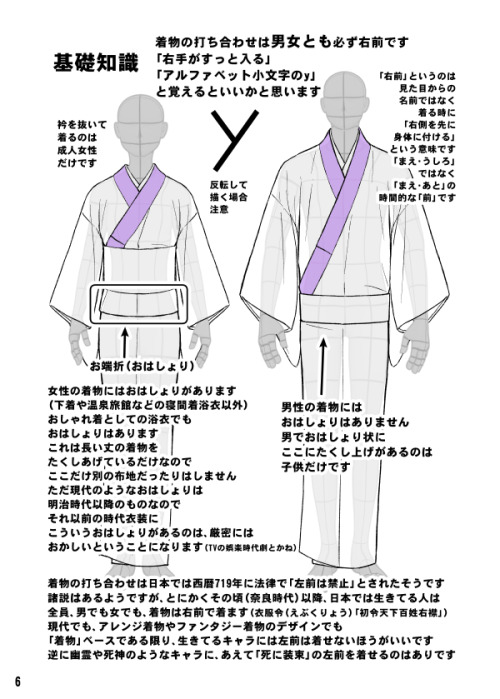

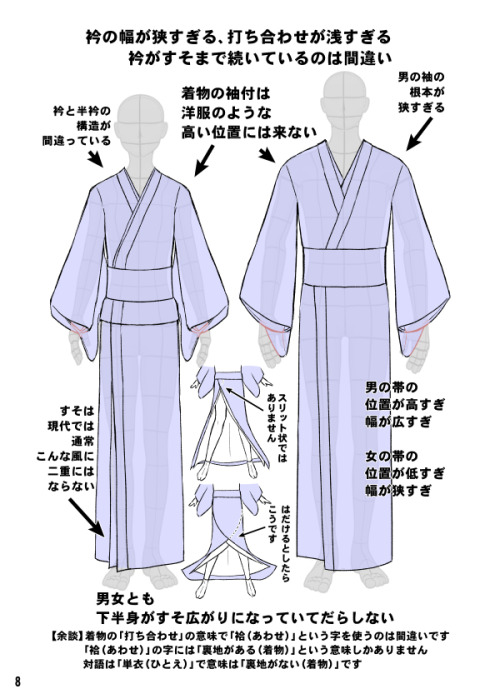
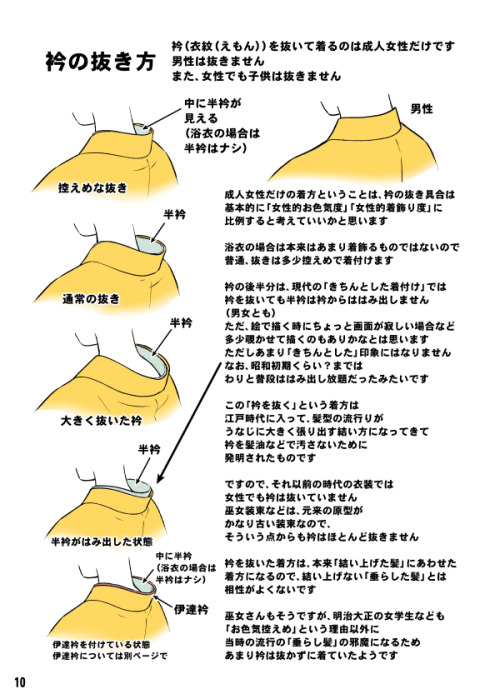

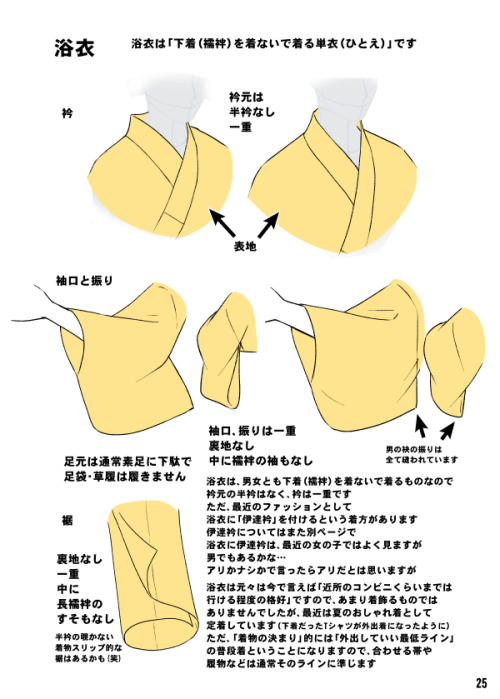

Kimono drawing guide ½, by Kaoruko Maya (tumblr, pixiv, site). Booklet is available in pdf for ¥ 900 here.
Here you can see:
female kimono and yukata (note how the juban underwear peeks when in kimono + how belts differ)
male yukata and kimono (note how the juban underwear peeks when in kimono)
dressing up: male (kimono is not closed yet) and female (kimono closed with datejime belt and ready to put on obi)
differences between female and male kimono once dressed (note how the collars and belts set)
common drawing mistakes (compare with previous picture: shoulders lines are too defined, there is a double hem, collars are narrow, belt is not at the right place etc)
women back collar (the lower the sexier) and men back collar (close to the nape)
back and sleeves differences between men and women
collars and sleeves and view of how kimono drapes around body
Furisode back (long sleeves kimono) and formal furisode obi knot example

A incrível dança do Universo!!
Eclipse Across America
August 21, 2017, the United States experienced a solar eclipse!

An eclipse occurs when the Moon temporarily blocks the light from the Sun. Within the narrow, 60- to 70-mile-wide band stretching from Oregon to South Carolina called the path of totality, the Moon completely blocked out the Sun’s face; elsewhere in North America, the Moon covered only a part of the star, leaving a crescent-shaped Sun visible in the sky.

During this exciting event, we were collecting your images and reactions online.
Here are a few images of this celestial event…take a look:

This composite image, made from 4 frames, shows the International Space Station, with a crew of six onboard, as it transits the Sun at roughly five miles per second during a partial solar eclipse from, Northern Cascades National Park in Washington. Onboard as part of Expedition 52 are: NASA astronauts Peggy Whitson, Jack Fischer, and Randy Bresnik; Russian cosmonauts Fyodor Yurchikhin and Sergey Ryazanskiy; and ESA (European Space Agency) astronaut Paolo Nespoli.
Credit: NASA/Bill Ingalls

The Bailey’s Beads effect is seen as the moon makes its final move over the sun during the total solar eclipse on Monday, August 21, 2017 above Madras, Oregon.
Credit: NASA/Aubrey Gemignani

This image from one of our Twitter followers shows the eclipse through tree leaves as crescent shaped shadows from Seattle, WA.
Credit: Logan Johnson

“The eclipse in the palm of my hand”. The eclipse is seen here through an indirect method, known as a pinhole projector, by one of our followers on social media from Arlington, TX.
Credit: Mark Schnyder

Through the lens on a pair of solar filter glasses, a social media follower captures the partial eclipse from Norridgewock, ME.
Credit: Mikayla Chase

While most of us watched the eclipse from Earth, six humans had the opportunity to view the event from 250 miles above on the International Space Station. European Space Agency (ESA) astronaut Paolo Nespoli captured this image of the Moon’s shadow crossing America.
Credit: Paolo Nespoli

This composite image shows the progression of a partial solar eclipse over Ross Lake, in Northern Cascades National Park, Washington. The beautiful series of the partially eclipsed sun shows the full spectrum of the event.
Credit: NASA/Bill Ingalls
In this video captured at 1,500 frames per second with a high-speed camera, the International Space Station, with a crew of six onboard, is seen in silhouette as it transits the sun at roughly five miles per second during a partial solar eclipse, Monday, Aug. 21, 2017 near Banner, Wyoming.
Credit: NASA/Joel Kowsky
To see more images from our NASA photographers, visit: https://www.flickr.com/photos/nasahqphoto/albums/72157685363271303
Make sure to follow us on Tumblr for your regular dose of space: http://nasa.tumblr.com
-
 wilde-woolf liked this · 3 years ago
wilde-woolf liked this · 3 years ago -
 jazz-1236 reblogged this · 4 years ago
jazz-1236 reblogged this · 4 years ago -
 witchythingsandstuffs liked this · 4 years ago
witchythingsandstuffs liked this · 4 years ago -
 cannibalgh0st liked this · 5 years ago
cannibalgh0st liked this · 5 years ago -
 pun-always-intended liked this · 5 years ago
pun-always-intended liked this · 5 years ago -
 erysian reblogged this · 5 years ago
erysian reblogged this · 5 years ago -
 poshima reblogged this · 5 years ago
poshima reblogged this · 5 years ago -
 zadi-jyne liked this · 5 years ago
zadi-jyne liked this · 5 years ago -
 alexisntawkward liked this · 5 years ago
alexisntawkward liked this · 5 years ago -
 rpenthusiast liked this · 5 years ago
rpenthusiast liked this · 5 years ago -
 knifecrow liked this · 6 years ago
knifecrow liked this · 6 years ago -
 queenof-squirrels liked this · 6 years ago
queenof-squirrels liked this · 6 years ago -
 the-fool-posts liked this · 6 years ago
the-fool-posts liked this · 6 years ago -
 daisukoth liked this · 6 years ago
daisukoth liked this · 6 years ago -
 xallyxcatxs liked this · 6 years ago
xallyxcatxs liked this · 6 years ago -
 jetswife liked this · 6 years ago
jetswife liked this · 6 years ago -
 sanctuaryqueens23 liked this · 6 years ago
sanctuaryqueens23 liked this · 6 years ago -
 gloomymadaleinecake liked this · 7 years ago
gloomymadaleinecake liked this · 7 years ago -
 peripeachy liked this · 7 years ago
peripeachy liked this · 7 years ago -
 fawngoo liked this · 7 years ago
fawngoo liked this · 7 years ago -
 thelochnesswitch reblogged this · 7 years ago
thelochnesswitch reblogged this · 7 years ago -
 sweetenby liked this · 7 years ago
sweetenby liked this · 7 years ago -
 yourlocalswamphag liked this · 7 years ago
yourlocalswamphag liked this · 7 years ago -
 frenziedmarten liked this · 7 years ago
frenziedmarten liked this · 7 years ago -
 zdik5075 liked this · 7 years ago
zdik5075 liked this · 7 years ago -
 edens-palace liked this · 7 years ago
edens-palace liked this · 7 years ago -
 uktenv liked this · 7 years ago
uktenv liked this · 7 years ago -
 pseudobiomass liked this · 7 years ago
pseudobiomass liked this · 7 years ago -
 wiccasaraus liked this · 7 years ago
wiccasaraus liked this · 7 years ago -
 imjustbi-bing liked this · 7 years ago
imjustbi-bing liked this · 7 years ago -
 slimewyrm reblogged this · 7 years ago
slimewyrm reblogged this · 7 years ago -
 puppysoup reblogged this · 7 years ago
puppysoup reblogged this · 7 years ago -
 puppysoup liked this · 7 years ago
puppysoup liked this · 7 years ago -
 kittiescatscats liked this · 7 years ago
kittiescatscats liked this · 7 years ago -
 theartloca liked this · 7 years ago
theartloca liked this · 7 years ago -
 foolofmadness reblogged this · 7 years ago
foolofmadness reblogged this · 7 years ago -
 foolofmadness liked this · 7 years ago
foolofmadness liked this · 7 years ago -
 wonderchipmunk liked this · 7 years ago
wonderchipmunk liked this · 7 years ago -
 leelandia reblogged this · 7 years ago
leelandia reblogged this · 7 years ago -
 leelandia liked this · 7 years ago
leelandia liked this · 7 years ago -
 melodic-dm-child reblogged this · 7 years ago
melodic-dm-child reblogged this · 7 years ago -
 melodic-dm-child liked this · 7 years ago
melodic-dm-child liked this · 7 years ago -
 typopandas reblogged this · 7 years ago
typopandas reblogged this · 7 years ago -
 teenagexscientist reblogged this · 7 years ago
teenagexscientist reblogged this · 7 years ago -
 brightmane57 reblogged this · 7 years ago
brightmane57 reblogged this · 7 years ago -
 brightmane57 liked this · 7 years ago
brightmane57 liked this · 7 years ago